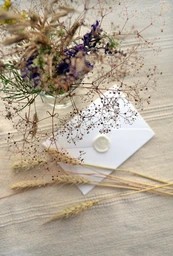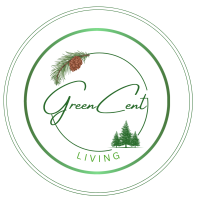It all started when I was a teenager. For some unknown reason, almost overnight, my body—once a quiet ally—turned into a stranger. My heart started racing as if chasing something invisible. I felt hot even in the dead of winter, and my energy drained away, leaving me hollow.
The diagnosis? A thyroid gone rogue, spiraling out of control. Doctor after doctor gave me the same verdict: surgery to remove the thyroid and a lifelong sentence of hormone replacement. It felt like a punishment, a loss I simply wasn’t ready to accept.
My father, a doctor himself, was a man of science, trained to trust the precision of traditional medicine. But in that moment of desperation, when the path forward seemed carved in stone, a flicker of doubt stirred in him. He remembered an old friend of his parents, a woman tucked away in the vast, wild reaches of Siberia. She was a keeper of ancient knowledge, someone who spoke of herbs as if they held the secrets of the earth itself. On a whim—or perhaps a whisper of hope—he wrote to her.

Weeks later, a letter arrived, its pages warm with kindness, accompanied by a small package of dried leaves. They looked unremarkable, like something you’d sweep from a forest floor, but they carried the sharp, earthy scent of untamed places. My mother, ever the believer in nature’s gentle remedies, was overjoyed. She’d always trusted raspberry tea for colds, warm potato compresses for aches, or the comforting embrace of chicken soup to soothe the soul. To her, these herbs were a gift, a chance to try something softer than a scalpel.
She brewed the Siberian herbs into a tea, following the woman’s instructions with care. Three times a day, I sipped the bitter, fragrant liquid, its warmth spreading through me like a quiet promise. I didn’t expect miracles. But at my next doctor’s visit, the impossible happened. The doctor’s face twisted in disbelief as he read my results: my thyroid, once a runaway train, was nearly normal. My symptoms—racing heart, bone-deep fatigue—had faded like a bad dream. I was whole again.
That moment planted a seed in me, one that grew into a lifelong love for the healing power of herbs. I began to study them, learning their names, their properties, their quiet strength. Chamomile to calm a restless mind, peppermint to ease a troubled stomach, nettle to lend vigor to weary bones. I discovered that herbs aren’t just plants—they’re partners, offering their gifts if you approach them with respect and knowledge.

I’m not naive. I know herbs can’t cure everything. Some illnesses demand the sharp edge of modern medicine, and herbs must be used with care, their powers understood deeply to avoid harm. My father’s medical wisdom taught me that balance, and I carry it with me. But when sickness creeps into my home—whether it’s a child’s fever or my own nagging cough—I turn first to nature’s remedies. A cup of elderberry tea, a salve of comfrey, a tincture of echinacea. These are my first steps, gentle and grounding, before reaching for anything else.
That Siberian package, sent across miles and years, didn’t just heal my body—it opened my heart to the earth’s quiet magic. Every time I crush a sprig of lavender between my fingers or steep a handful of herbs in hot water, I’m reminded of that teenage girl, scared and tired, who found hope in a few dried leaves. Herbs taught me that healing can be soft, patient, and profoundly alive. And for that, I’ll always be grateful.
